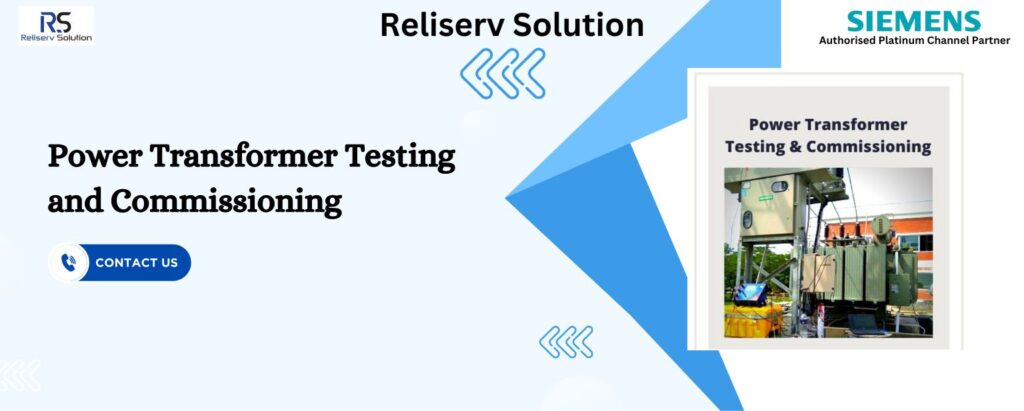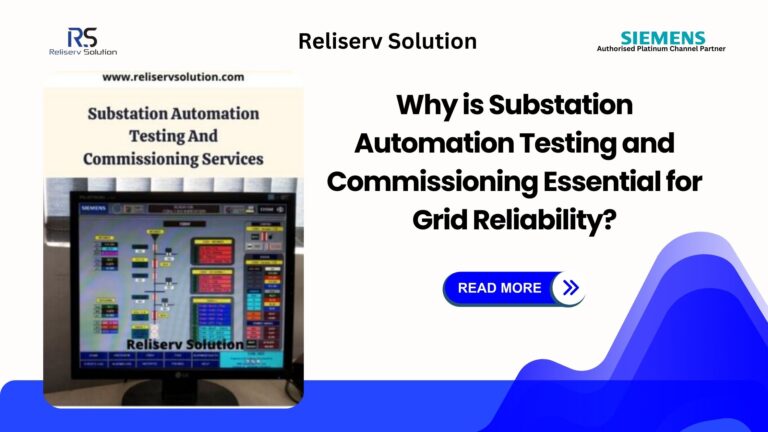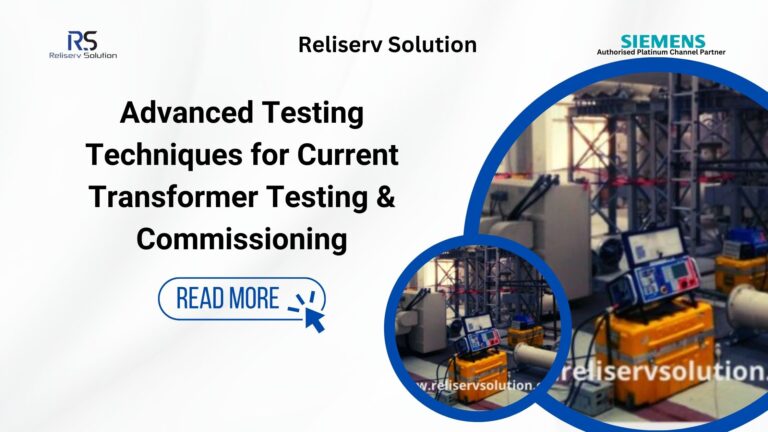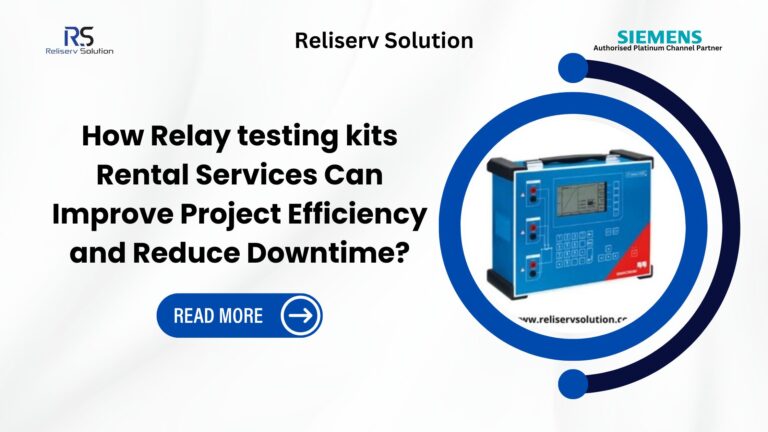In the world of power distribution, transformers are indispensable. They play a crucial role in transmitting electrical energy across vast distances, stepping up or stepping down voltage levels to meet the requirements of various applications. As critical components in the electrical grid, Power Transformer Testing services must operate reliably and efficiently to ensure the stability and safety of the power distribution network. This reliability is not just a matter of convenience but is essential for preventing outages, protecting infrastructure, and ensuring the safety of personnel and the public.
Power transformers, however, are subject to various stresses and potential faults due to their constant operation under high electrical loads. Over time, these stresses can lead to deterioration in performance, failures, and catastrophic breakdowns if not addressed promptly. This is where Power Transformer Testing in Mumbai comes into play. Regular testing is crucial for identifying potential issues before they escalate, ensuring the longevity and optimal performance of transformers.
This blog delves into the importance of power transformer testing in power distribution. It explores the various types of tests conducted, their benefits, and how they contribute to maintaining the integrity and reliability of the electrical grid. By understanding the significance of these tests, stakeholders in the power industry can better appreciate the value of investing in thorough and regular transformer testing.
Introduction to the Power Transformer Testing and Commissioning
Our team of professionals provides all types of transformer testing and commissioning. We operate at all voltage ranges, including MV, EHV, HV, and LV. In addition, we handle ETC for GIS and AIS substations. We take great pride in having our own cutting-edge testing apparatus so that we can rapidly complete the task on our own and do the essential testing of the transformers.
Offline Testing:
- Analysis of Dielectric Frequency Response (DFR)
- Measurement of Sweep Frequency Response Analysis
- Transformer Capacitance and Tan Delta Measurement
- Transformer Measurement Ratio Turns Ratio
- Magnetic Balance Indicator
- Measurement of Excitation Current
- Measurement of Winding Resistance
- Measurements of Insulation Resistance and Polarization Index
- Calibration of OTI and WTI Meters
- Examining the functionality of protective devices such as MOG, PRV, Buchoze Relay, OTI, and WTI
Online Testing:
- Partial Discharge Determination and Positioning
- Thermography
- Measurement of moisture content online
- Transformer Oil Test (DGA, Furan, and Screening)
The Role of Power Transformers in Power Distribution
Power transformers are integral to the power distribution system, serving several key functions:
- Voltage Regulation: Transformers adjust voltage levels to match the requirements of different stages of power transmission and distribution, ensuring efficient energy flow from generation sites to end users.
- Power Distribution: By stepping down high transmission voltages to lower distribution voltages, transformers facilitate the safe and efficient delivery of electricity to homes, businesses, and industries.
- Load Balancing: Transformers help distribute electrical loads evenly across the network, preventing overloads and maintaining system stability.
- Safety: Properly functioning transformers protect electrical systems from faults and surges, minimizing the risk of damage and enhancing overall safety.
Given their critical role, it is imperative to ensure that power transformers are in optimal working condition at all times. This can be achieved through regular and comprehensive testing.
Importance of Power Transformer Testing
- Preventing Catastrophic Failures: One of the primary reasons for regular transformer testing services is to prevent catastrophic failures with Power Transformer Testing Provider. Transformers operate under high electrical and thermal stresses, which can lead to insulation breakdown, overheating, and mechanical failures over time Power Transformer Testing in Mumbai. Regular testing helps identify early signs of these issues, allowing for timely intervention and repairs. This proactive approach significantly reduces the risk of sudden and severe transformer failures with Power Transformer Testing Provider.
- Ensuring Reliable Operation: Reliability is a cornerstone of any power distribution system Power Transformer Testing in Mumbai. Transformers must perform consistently under varying load conditions and environmental factors. Testing ensures that transformers are operating within their specified parameters and can handle the demands placed on them by Power Transformer Testing Provider.
- Extending Transformer Lifespan: Power transformers are significant investments for utility companies and industrial plants. Regular testing and maintenance can significantly extend the operational lifespan of these valuable assets including the Power Transformer Testing Provider. By detecting and addressing potential issues early, testing helps prevent accelerated aging and deterioration of transformer components Power Transformer Testing in Mumbai.
- Enhancing Safety: Safety is a paramount concern in power distribution. Faulty transformers can pose serious safety risks, including electrical fires, explosions, and electric shocks. Testing helps ensure that transformers are safe to operate and comply with industry safety standards with Power Transformer Testing Provider.
- Compliance with Standards and Regulations: The power industry is governed by strict standards and regulations to ensure electrical systems’ safety, reliability, and efficiency. These regulations often mandate regular transformer testing to ensure compliance.

Types of Power Transformer Tests
There are various types of tests conducted on power transformers, each serving a specific purpose in evaluating their condition and performance:
- Visual Inspection: Visual inspection is the first step in transformer testing services. It involves checking for visible signs of damage, and contamination. This includes inspecting the external condition of the transformer, as well as internal components.
- Insulation Resistance Testing: Insulation resistance testing measures the resistance of the transformer’s insulation materials. High resistance indicates good insulation, while low resistance suggests potential insulation breakdown.
- Dielectric Tests: Dielectric tests assess the transformer’s ability to withstand high-voltage stresses. These tests include:
- Dielectric Breakdown Test: Determines the voltage at which the insulation fails.
- Dielectric Absorption Test: Measures the ability of the insulation to absorb and retain electrical charge.
- Dielectric Loss Test: Evaluates the energy loss in the insulation due to electrical dissipation.
- Oil Analysis: Transformers are typically filled with insulating oil, which serves as both a coolant and an insulator. Oil analysis involves testing the chemical and physical properties of the oil to detect contamination, moisture, and degradation products.
- Thermal Imaging: Thermal imaging uses infrared cameras to detect hotspots and uneven temperature distribution in transformers. This non-invasive test helps identify areas of overheating, which can indicate problems such as poor connections, overloading, and insulation failures.
- Sweep Frequency Response Analysis (SFRA): SFRA is a diagnostic test that assesses the mechanical integrity of the transformer windings and core. By measuring the transformer’s response to a range of frequencies, SFRA can detect issues such as winding deformation, core displacement, and loose connections.
- Partial Discharge Testing: Partial discharge testing detects small electrical discharges within the insulation system that can lead to insulation failure over time. This test helps identify areas of localized insulation deterioration and voids that could compromise the transformer’s reliability.
Conclusion
In the realm of power distribution, the importance of Power Transformer Testing in Mumbai cannot be overstated. Transformers are critical components that ensure the efficient and reliable delivery of electrical energy. Regular testing is essential for preventing catastrophic failures, ensuring reliable operation, extending the lifespan of transformers, enhancing safety, and complying with industry standards and regulations.
Through a combination of visual inspections, insulation resistance testing, dielectric tests, oil analysis, thermal imaging, sweep frequency response analysis, and partial discharge testing, power transformers can be thoroughly evaluated for potential issues. These tests provide valuable insights into the condition and performance of transformers, allowing for timely maintenance and repairs.
By investing in regular power transformer testing services, utility companies and industrial plants can protect their valuable assets, maintain the stability and reliability of the power grid, and ensure the safety of personnel and the public. In an industry where reliability and safety are paramount, proactive testing and maintenance of power transformers are indispensable practices that deliver significant long-term benefits.
Based in Mumbai, Maharashtra, Reliserv Solution is both an Authorized supplier and a Platinum Channel Partner of Siemens. Our specialist services and solutions are also beneficial to other industries, including panel builders. If you need help or have any questions, please email us at [email protected] or give us a call at +917506112097. Click here to see our services that are currently offered. Over the years, in addition to our well-known Power Transformer Testing, and Commissioning, we have provided a wide range of other services.



